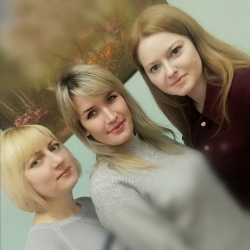Просмотр содержимого документа
«Аудирование "Higher education in Great Britain"»
Higher education in Great Britain.
There are more than a hundred universities in Britain. Good ‘A’ Level results in at least two subjects are necessary to get a place at one. But that is not enough. Universities choose their students after interviews, and competition for places at university is tough.
Students normally apply to University from 18 onwards and study for an Academic Degree. Higher education typically begins with a 3-year Bachelor’s Degree. During a first degree students are known as undergraduates. Postgraduate degrees include Master’s Degrees and Doctor of Philosophy, a research degree that usually takes at least three years.
First-year-university students are called ‘freshers’. A fresher’s life can be exciting but terrifying for the first week as everything is so unusual; and often far from home. Most 18 and 19 year-olds in Britain are fairly independent people, and when the time comes to pick a college they usually choose one as far away from home as possible! So, many students in northern and Scottish universities come from the south of England and vice versa. It is very unusual for university students to live at home. Although parents may be a little sad to see this happen, they usually approve of the move, and see it as a necessary part of becoming an adult.
Often freshers will live in a hall of residence on or near the college campus, although they may move out into a rented room in their second or third year, or share a house with friends. Many freshers will feel very homesick for the first week or so, but living in halls soon helps them to make new friends. 3 4
During the first week, all the clubs and societies hold a ‘freshers’ fair’ during which they offer the new students to join their society.
On the day that lectures start, groups of freshers are often seen walking around huge campuses, maps in hands and a worried look on their faces. They are learning how difficult it is to change from school to university life. They also learn a new way of studying. As well as lectures, there are regular seminars, at which one of a small group of students (probably not more than ten) reads a paper he or she has written. The paper is then discussed by the tutor and the rest of the group. Once or twice a term, students will have a tutorial. This means that they see a tutor alone to discuss their work and their progress. In Oxford and Cambridge, and some other universities, the study system is based entirely around such tutorials which take place once a week. Attending lectures is optional for Oxford or Cambridge (often called ‘Oxbridge’) students!
After three or four years (depending on the type of course and the university) these students will take their finals. Most of them (over 90 per cent) will get a first-, second- or third-class honour degree and be able to put BA (Bachelor of Arts) or BSc (Bachelor of Science) after their name. It will have been well earned!
























